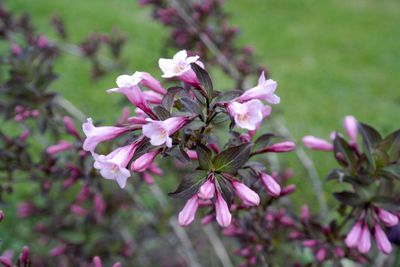Help, Why Isn’t My Abelia Flowering?
Before we delve into why an abelia won’t flower, a bit of background on this perennial favorite is in order. Abelias are grown for their prolific and generally reliable long bloom time. The masses of pretty pink flowers at the end of arching branches make for a dramatic effect in the garden. The plant is naturally roundish in shape and works beautifully in a butterfly garden where it attracts insects to its sweet-scented blooms. Once established, it needs very little maintenance and can be grown in full sun to part shade in well-drained soil.
Reasons for No Flowers on Abelia
Now that we know how abelia grows, it’s time to do some sleuthing to figure out why an abelia does not bloom. Okay, maybe not sleuthing, but some deductive reasoning. First of all, abelia is an evergreen in zones 8-9 because temps are mild. In cooler regions, USDA zones 5-7, the plant will lose leaves as it gets cooler and it will also be smaller. Have no fear, abelia will be back in the early summer, but you may have to wait for it to blossom. A lack of blooms may just be a natural reaction to winter dormancy. Pruning may also be a reason for a lack of blossoms. There is such a thing as too much and, in the case of abelia, a little pruning goes a long way. It is definitely possible to get a little too aggressive pruning. If that is the case, time may work wonders, or not. Also, abelia needs well-drained soil. It could be that the plant is located in an area that tends to retain water and is sodden. If that is the case, though, more than likely the entire plant looks dead. Too much nitrogen fosters gorgeous, green foliage but not so much for blooms. If you have fertilized the abelia with a nitrogen rich food, it may be too much of a good thing. This will be apparent if the plant is large and has lots of beautiful foliage, just no flowers. As far as getting flowers on abelia, the answer may be any of the above. Generally speaking though, abelia is a pretty easy plant to grow and really does need minimal care with the reward of blossoms from early summer to autumn.
